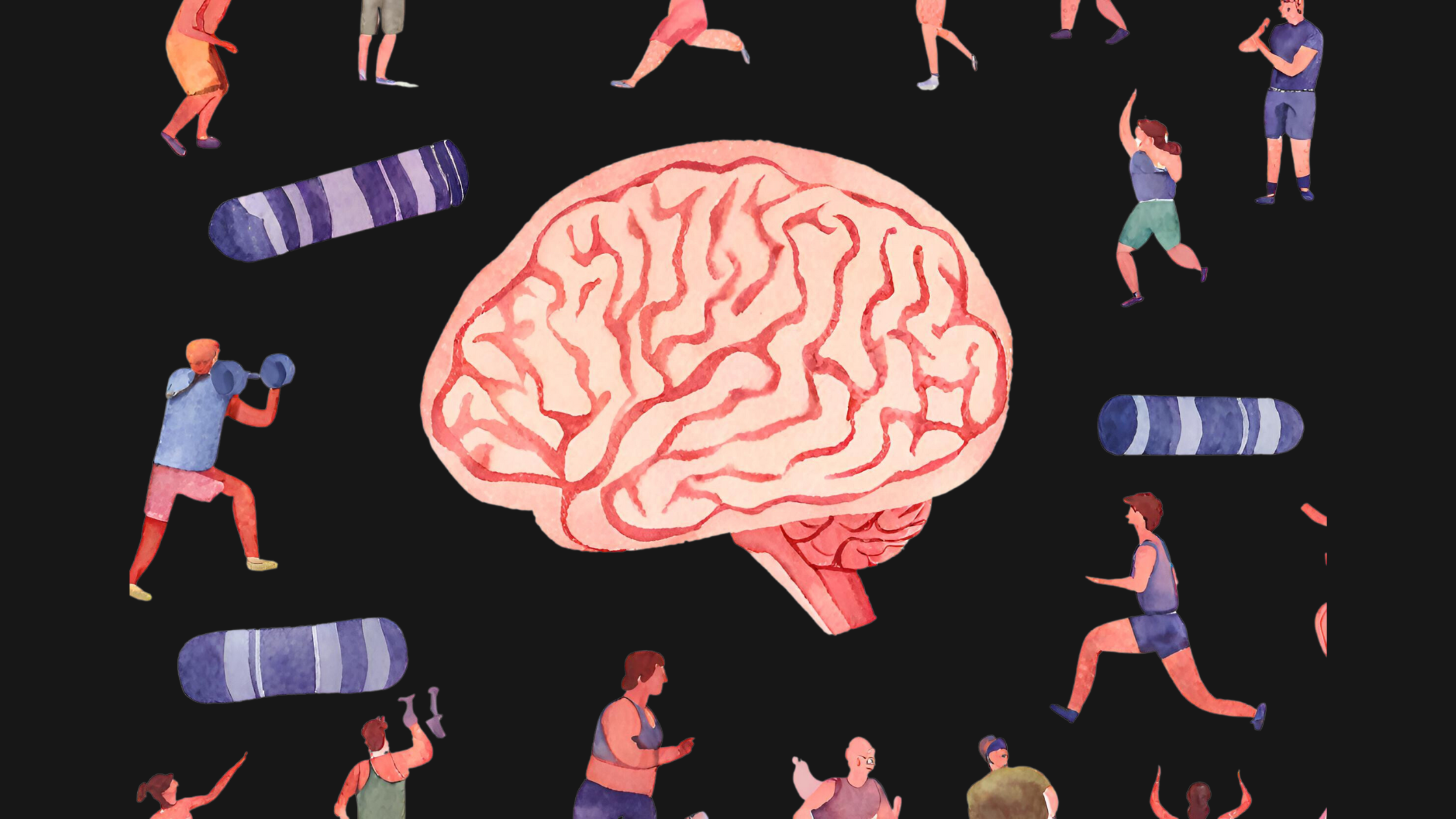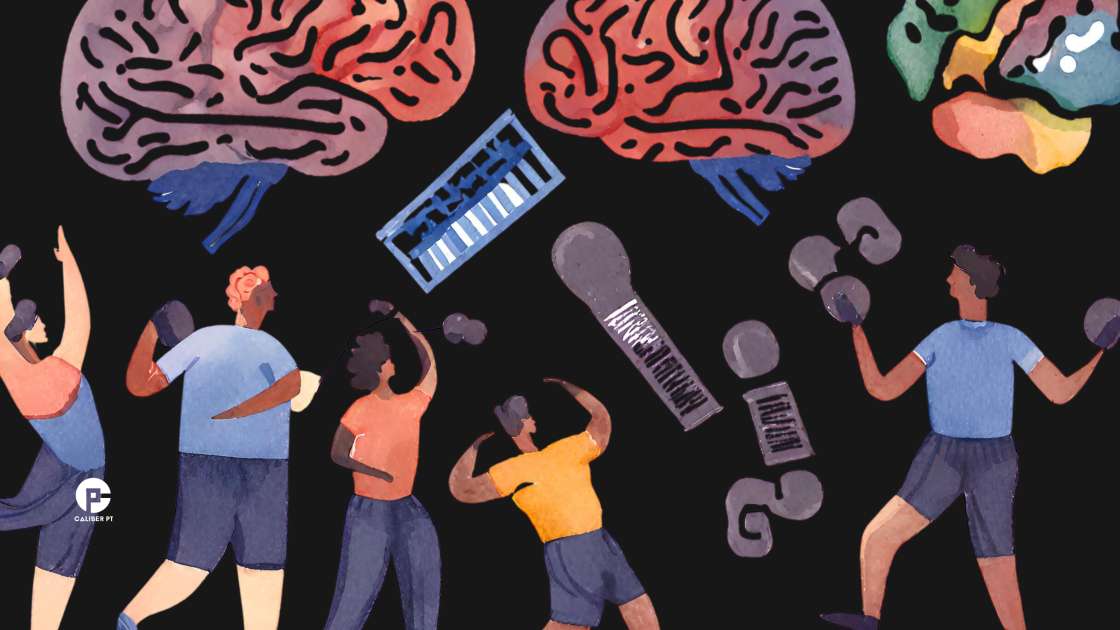© Copyright 2023 Caliber PT PLLC - All Rights Reserved
In our fast-paced, technology-driven world, it's easy to overlook the importance of physical activity. We often prioritize our mental health and cognitive abilities, forgetting that the mind and body are intricately connected. However, recent research has shed light on the transformative power of exercise on the brain. Not only does exercise have immediate effects on brain function, but it also has long-lasting impacts on brain anatomy and function. Regular physical activity can protect against cognitive decline and promote overall brain health.
Today, we're diving deep into this fascinating topic of brain health and its remarkable ability to safeguard against neurodegenerative diseases like Alzheimer’s.
The Transformative Power of Physical Activity
Regular exercise has profound benefits for your mental well-being. When we engage in physical activity, our bodies release endorphins, which are natural chemicals in the brain responsible for elevating mood and reducing pain perception. These endorphins act as powerful mood boosters, helping to combat stress, anxiety, and even symptoms of depression.
In our fast-paced lives, stress can accumulate and take a toll on our mental health. Physical activity acts as a potent stress buster, offering an outlet for releasing tension and pent-up energy. Whether it's a vigorous workout at the gym or a calming yoga session, exercise provides a way to channel our stress and find balance.
But the benefits of physical activity on mental health go beyond immediate mood improvement. Exercise has immediate, long-lasting, and protective effects on the brain. It can improve brain function, including decision-making, focus, attention, and memory.
One key structure in the brain that is critical for forming and retaining long-term memories is the hippocampus. The hippocampus is responsible for our ability to remember facts and events. This can include a transformative thing in your life, like a first kiss or the birth of a child, which can form a memory that lasts a lifetime.
Research has shown that exercise can enhance the health and function of the hippocampus, leading to improved memory. By engaging in regular physical activity, we can promote the growth of new brain cells and protect the existing ones.
Exercise Boosts Brain Power: The Immediate Effects
In a TED talk by Neuroscientist Wendy Suzuki, she shares her personal experience of how exercise had immediate effects on her brain and overall well-being. This led her to switch her research program and study the brain-changing effects of exercise.
Suzuki discovered that exercise has the potential to change lives, both mentally and physically. When she realized she had no social life and was neglecting her physical health, she decided to prioritize exercise. She tried various types of workouts, including kickboxing, dancing, yoga, and step classes.
What she noticed after each sweat-inducing workout was a significant mood and energy boost. This positive impact on her mental state and physical energy levels motivated her to continue exercising regularly.
Her personal experience highlights the transformative effects of exercise on mood, memory, anxiety, focus, and concentration. Suzuki discusses the science behind it, emphasizing the growth of new brain cells and the protective benefits of exercise for brain health.
Long-lasting Effects of Exercise on Brain Anatomy and Function
Aerobic activity not only has immediate effects on mental health and cognitive performance but also has long-lasting effects on brain anatomy and function. The benefits of exercise on mental health and cognitive performance have been extensively studied and documented. Exercise has been shown to generate structural changes in the brain, involving neural, glial, and vasculature components.
The presence of novel experiences or learning is a crucial component in how these structural changes are manifested. It has been observed that exercise combined with learning or engaging in new experiences produces more significant changes in brain structure. Additionally, the effects of exercise on brain structure and function can vary in different populations, such as those with diseases or elderly individuals.
One of the immediate effects of exercise on the brain is the increase in neurotransmitters like dopamine, serotonin, and noradrenaline. These neurotransmitters are responsible for enhancing mood, energy, memory, and attention. Many individuals who engage in regular exercise report improvements in their overall mood, increased energy levels, and better cognitive function.
Considering the transformative effects of exercise on the brain, it is crucial to prioritize physical activity for its numerous benefits. Whether it is going to the gym, working out at home, or engaging in outdoor activities, regular exercise can have a profound impact on brain health. By promoting the growth of new brain cells, protecting against cognitive decline, and improving mood, focus, and concentration, exercise is truly a powerful activity for enhancing brain function.
Exercise Helps Protect The Brain
Exercise is not only beneficial for physical health but also has protective effects on brain health. One interesting finding is that even a single workout session can lead to immediate improvements in attention and reaction times. These effects may last for at least two hours, making exercise a powerful tool for enhancing focus and cognitive performance in the short term.
But the benefits of exercise go beyond immediate effects. Regular exercise actually produces changes in the brain's anatomy, physiology, and function. One area of the brain that is particularly affected is the hippocampus, which is involved in memory formation. Exercise has been shown to stimulate the growth of new brain cells in the hippocampus, leading to an increase in its volume and an improvement in long-term memory.
Another brain area that is positively influenced by exercise is the prefrontal cortex, which is responsible for executive functions such as attention, decision-making, and impulse control. Studies have consistently found that long-term exercise improves attention function, and this improvement is dependent on the prefrontal cortex.
In addition to these cognitive benefits, exercise has long-lasting effects on mood. Engaging in physical activity triggers the release of neurotransmitters such as endorphins, serotonin, and dopamine, which are known to improve mood and reduce symptoms of anxiety and depression. These positive mood effects can persist for an extended period of time, contributing to overall mental well-being.
Perhaps the most transformative aspect of exercise is its protective effects on the brain. The hippocampus and the prefrontal cortex, which are crucial for cognitive function, are particularly vulnerable to neurodegenerative diseases and normal cognitive decline associated with aging. By engaging in regular exercise over a lifetime, individuals can potentially reduce their risk of developing conditions such as dementia and Alzheimer's disease.
Optimum Exercise Prescription for Boosting Brain Health
Exercise is not only beneficial for physical health, but it also plays an important role in maintaining brain health and improving cognition. Research has shown that approximately 40% of people ages 65 and older experience some degree of age-related cognitive decline. Incorporating exercise into our daily habits can help prevent cognitive decline and improve brain function.
One of the ways exercise impacts the brain is by creating a stronger and bigger hippocampus and prefrontal cortex. These areas of the brain are important for memory, learning, and cognitive function. By engaging in regular exercise, we can effectively protect these brain regions, making it more difficult for age-related diseases to have a negative impact.
Suzuki, the neuroscientist, describes exercise as a "supercharged 401K for your brain" because of its long-term benefits. And the best part? It's free. She emphasizes that you don't have to become a triathlete to reap the brain-health benefits of exercise. The rule of thumb is to aim for three to four times a week of exercise for at least 30 minutes per session. Aerobic exercise, which gets your heart rate up, is particularly effective for improving brain function.
Ongoing research is focused on understanding the optimum exercise prescription for maximizing the effects of exercise based on factors such as age, fitness level, and genetic background. Scientists like Suzuki are working to determine the most effective exercise routines for individuals to improve brain health and protect the brain for the rest of their lives.
What You Can Learn From This:
Exercise is not only beneficial for our physical health but also for our mental well-being and cognitive abilities. The immediate effects of exercise on brain function, the long-lasting impacts on brain anatomy and function, and the protective effects against cognitive decline all highlight the profound influence that exercise can have on our brains. By understanding the optimum exercise prescription for maximizing brain benefits, we can harness the full potential of physical activity to enhance our cognitive abilities and promote overall brain health.
We can help you reach your wellness goals with personalized care and tailored treatment plans. At Caliber PT, we prioritize your specific needs, providing dedicated attention and support throughout your physical therapy journey. Experience the full benefits of our concierge practice and let us guide you towards optimal recovery.
Elevate your wellness game.
Gain access to expert advice, cutting-edge insights, and exclusive offers from Caliber PT.
Subscribe to our newsletter.
Sources:
Adrian, Dennis A, Bandettini PA, Johansen‐Berg H. The Effects of Aerobic Activity on Brain Structure. Frontiers in Psychology. 2012;3. doi:https://doi.org/10.3389/fpsyg.2012.00086
Guo, L., Yang, X., Zhang, Y., Xu, X., & Li, Y. (2023). Effect of exercise on cognitive function and synaptic plasticity in Alzheimer's disease models: A systematic review and meta-analysis. Frontiers in Aging Neuroscience, 14. https://doi.org/10.3389/fnagi.2022.1077732.
Hogan CL, Mata J, Carstensen LL. Exercise holds immediate benefits for affect and cognition in younger and older adults. Psychology and Aging. 2013;28(2):587-594. doi:https://doi.org/10.1037/a0032634
Iwon, K., Skibinska, J., Jasielska, D., & Kalwarczyk, S. (2021). Elevating Subjective Well-Being Through Physical Exercises: An Intervention Study. Frontiers in Psychology, 12. https://doi.org/10.3389/fpsyg.2021.702678.
Mikkelsen, K., Stojanovska, L., Polenaković, M., Bosevski, M., & Apostolopoulos, V. (2017). Exercise and mental health.. Maturitas, 106, 48-56. https://doi.org/10.1016/j.maturitas.2017.09.003.
Vecchio LM, Meng Y, Kristiana Xhima, Lipsman N, Hamani C, Aubert I. The Neuroprotective Effects of Exercise: Maintaining a Healthy Brain Throughout Aging. Brain plasticity. 2018;4(1):17-52. doi:https://doi.org/10.3233/bpl-180069
Xu, L., Gu, H., Cai, X., Zhang, Y., Hou, X., Yu, J., & Sun, T. (2023). The Effects of Exercise for Cognitive Function in Older Adults: A Systematic Review and Meta-Analysis of Randomized Controlled Trials. International Journal of Environmental Research and Public Health, 20. https://doi.org/10.3390/ijerph20021088.



